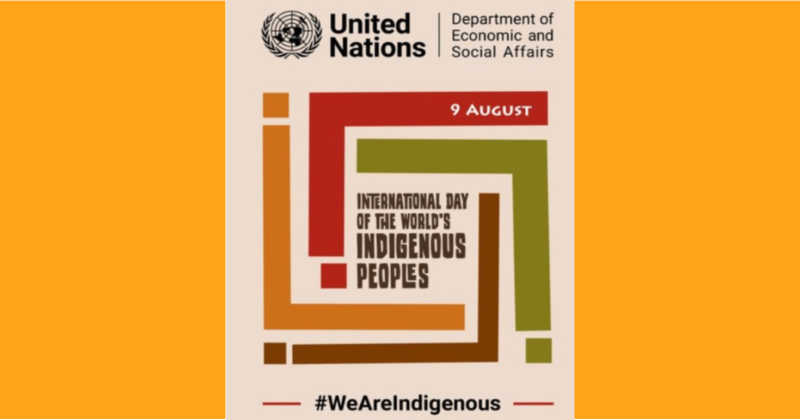Susan O'Rourke | August 24, 2022

The richness and diversity of Indigenous cultures are recognized around the world on International Day of the World’s Indigenous People (August 9) and in the United States on Indigenous Peoples’ Day (October 10). UNC World View encourages educators looking forward to discussing these Indigenous cultures in their classrooms to check out the lessons created by UNC World View Fellows in partnership with the UNC American Indian Center and the UNC Research Labs of Archaeology.
The lessons were developed as part of the 2021-2022 UNC World View Fellows Program, Exploring Indigenous Cultures: Ancient North Carolinians, Past and Present. North Carolina educators were selected as Fellows, and they created lessons for a variety of disciplines in K-12 schools and community colleges so students can learn about the ancient peoples that lived here and those who represent today’s vibrant American Indian populations. Lessons also make connections from the past to the present day by exploring multiple resources within the Ancient North Carolinians: A Virtual Museum of North Carolina Archaeology website to examine how communities changed over time and what influenced these changes. Understanding past indigenous lifeways—their complexity, resiliency, and vitality—allows for a greater appreciation of the contributions American Indians made to the past and continue to make to the present and future of North Carolina.
Educators are encouraged to incorporate global perspectives while discussing Indigenous cultures and history. Check out the following resources that discuss Indigenous cultures around the world:
International Day of the World’s Indigenous Peoples 2022 (United Nations)
- This year, the Department of Economic and Social Affairs at the United Nations held a conference that studied “The Role of Indigenous Women in the Preservation and Transmission of Traditional Knowledge.” As part of this conference, different organizations and national groups were invited to share information on the essential roles women play as cultural historians, protecting “‘Traditional knowledge,’” or the “‘cumulative body of knowledge, know-how, practices and representations maintained and developed by peoples with extended histories of interaction with the natural environment. These sophisticated sets of understandings, interpretations and meanings are part and parcel of a cultural complex that encompasses language, naming and classification systems, resource use practices, ritual, spirituality and worldviews.’” (UNESCO and the Internal Council of Science)
- Related Resources:
- “The Role of Indigenous Women in the Transmission of Traditional Knowledge” (Convention on Biological Diversity)
- “5 Indigenous women climate activists you should know about” (UN Development Program)
- “Seeds of Change: How Indigenous Women’s Ancestral Knowledge Can Bolster Climate Security” (UN Department of Political and Peacebuilding Affairs)
- Tradition. Culture. From looms to lutes, the importance of women in the preservation and transmission of traditional knowledge in China cannot be overstated (UN Development Program)
- “Indigenous Women Leaders Persevere Amid a Changing Climate” (The World Bank)
- “Indigenous Women and the Development, Application, Preservation and Transmission of Scientific Knowledge” (Australian Government)
- National Indigenous Women Forum of Nepal
- Indigenous Literature Conference (2022) (CIELO, Comunidades Indígenas en Liderazgo)
